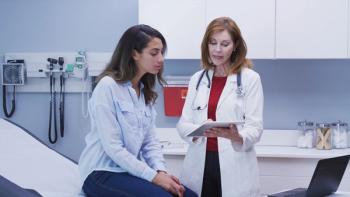
Cancer-Related Fatigue: The Most Distressing Cancer-Related Symptom
This blog will focus on Cancer-related Fatigue: an overview, definition, the impact on patients' lives, prevalence, and possible sources. The next blog will include treatments, guidelines, and patient recommendations.
This blog will focus on cancer-related fatigue: an overview, definition, the impact it has on patients’ lives, prevalence, and possible sources. The next blog will include treatments, guidelines, and patient recommendations.
OVERVIEW: Although you probably hear complaints about fatigue from patients every day, you may be surprised to learn that cancer patients rank fatigue as the MOST distressing cancer-related symptom even when compared with nausea, pain, and vomiting.1 According to the NCCN guidelines, “Fatigue in patients with cancer has been under-reported, under-diagnosed, and under-treated.”2 Although patients may describe fatigue in various terms, such as being exhausted, lazy, or worn out, the NCCN defines cancer-related fatigue (CRF) as “a distressing persistent, subjective sense of physical, emotional, and cognitive tiredness or exhaustion related to cancer or cancer treatment that is not proportional to recent activity and interferes with usual functioning.2 What sets CRF apart from fatigue in a normal population is that “normal” fatigue is caused by exertion and is relieved by rest; CRF occurs regardless of physical activity and rest is not restorative.
HOW DOES CRF AFFECT PATIENTS’ LIVES?
The impact of CRF on patients’ lives is multifaceted. One survey3 documented that fatigue hindered “normal life,” by disrupting routines and making everyday activities such as walking distances and cleaning the house difficult. Patients said they felt personal relationships suffered because they didn’t have enough energy to participate in social activities. CRF also impaired patients’ ability to work: 75% of patients reported needing to change employment status, including 23% who went on disability. Patients said that CRF led to mental distress as a result of having to push themselves to do things and having decreased ability to carry out cognitive tasks due to problems with concentration and memory. In addition, patients felt isolated because other people did not understand the extent and impact of CRF. It is not surprising to find that CRF is associated with depression and hopelessness.3
HOW MANY PATIENTS HAVE CRF, AND HOW LONG DOES IT LAST?
The prevalence of CRF has been reported as high as 100%4 and varies depending on the site and timing and type of assessment. Approximately 50% of cancer patients report fatigue at diagnosis. The prevalence increases as treatment, chemotherapy, radiation therapy, and biological and hormonal therapy, progresses5 and may increase with disease progression and at the end-of-life. CRF may persist years after treatment has ended. Cancer survivors have reported that they never regained their prediagnosis energy level, resulting in a lower quality of life.6
WHAT CAUSES CRF?
The etiology of CRF is complex and little understood. Most likely, the cause is a combination of pre-existing factors, comorbidities, the cancer itself, and treatment. The list below succinctly lists possible causes of CRF, but many more factors may be involved, and it is likely that each patient has a unique blend of factors contributing to their CRF.
Etiologies of cancer-related fatigue7
- Preexisting conditions—Congestive heart failure, chronic obstructive pulmonary disease
- Direct effects of cancer, “tumor burden”
- Effects of cancer treatment—Surgery, radiation therapy, chemotherapy, biological therapies
- Psychological factors—Depression, anxiety
- Immobility
- Sleep disturbances (insomnia, excessive daytime sedation with or without narcolepsy, restless leg syndrome, obstructive sleep apnea)
- Cancer-related symptoms—Pain, nausea
- Conditions related to cancer its treatment—Anemia, dehydration, malnutrition, infections, electrolyte abnormalities, cytokine production, myopathy
- Medications and drugs—Opioid analgesics, psychotropic agents, beta-blockers, alcohol
>>>
References
- Vogelzang NJ, Breitbart W, Cella D, et al. Patient, caregiver and oncologist perceptions of cancer-related fatigue: Results of a tripart assessment survey. Semin Hematol. 1997;3:4-12.
- National Comprehensive Cancer Network. Cancer-Related Fatigue (Version 1.2015).https://www.nccn.org/store/login/login.aspx?ReturnURL=http://www.nccn.org/professionals/physician_gls/pdf/fatigue.pdf. Accessed December 22, 2014.
- Curt GA, Breitbart W, Cella D, et al. Impact of cancer-related fatigue on the lives of patients: New findings from the Fatigue Coalition. Oncologist. 2000;5:353-360.
- Hofman M, Ryan JL, Figueroa-Moseley CD, et al. Cancer-related fatigue: The scale of the problem. Oncologist. 2007;12(Suppl 1):4-10.
- Mock V, Atkinson A, Barsevick A, et al. NCCN Practice Guidelines for Cancer-Related Fatigue. Oncology (Williston Park). 2000;14:151-161.
- Gledhill J. A qualitative study of the characteristics and representation of fatigue in a French speaking population of cancer patients and healthy subjects. Eur J Oncolo Nurs. 2005;9:294-314.
- Breitbart WS, Alici Y: Fatigue, in Holland JC (ed): Psycho-Oncology, New York, NY, Oxford University Press, 2010, p. 237.
Newsletter
Knowledge is power. Don’t miss the most recent breakthroughs in cancer care.































































































